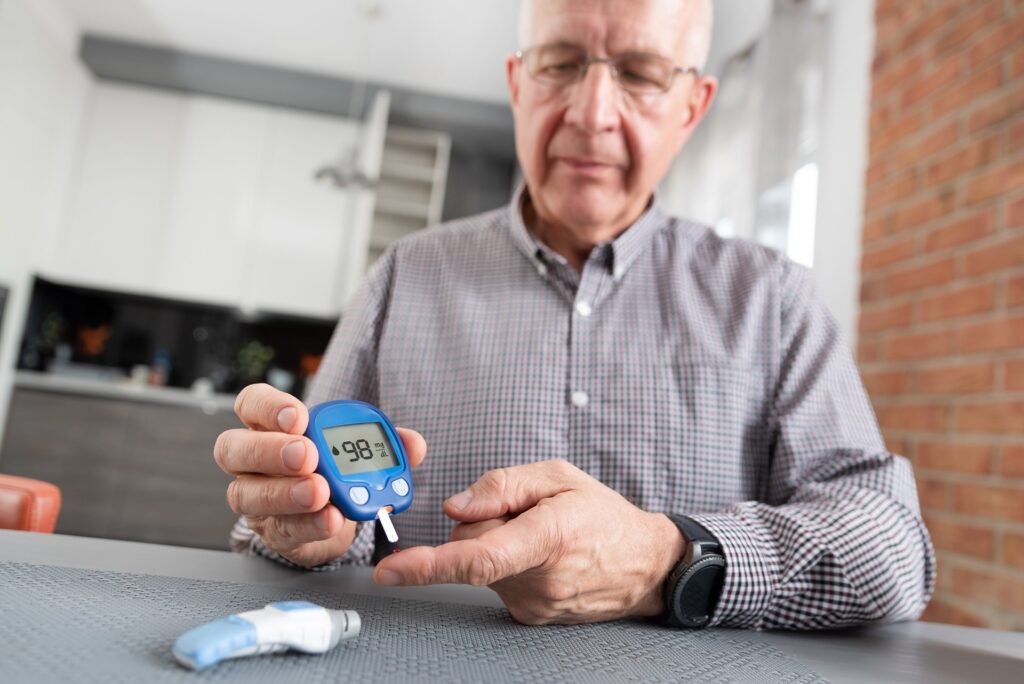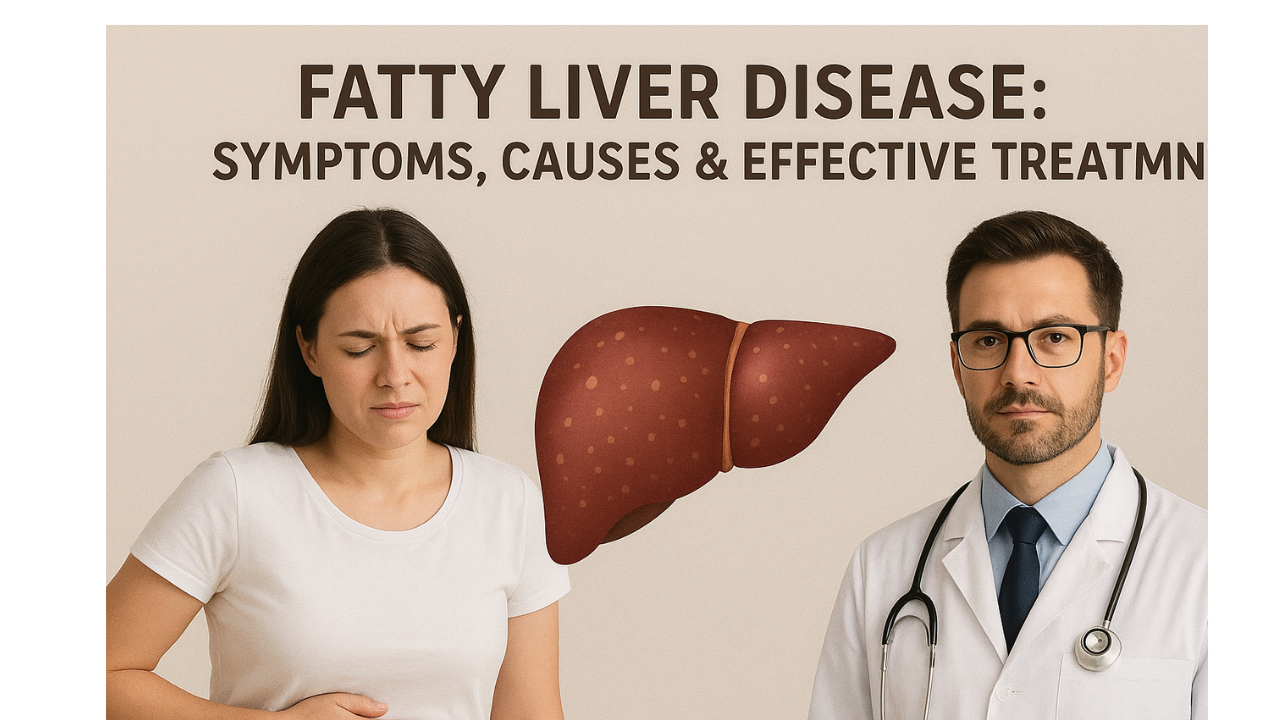Men’s health is a vital yet often overlooked aspect of overall well-being. While many men tend to prioritize work, family, and responsibilities, their own health can sometimes take a backseat. However, maintaining good health is essential—not just for personal longevity but also for fulfilling life roles effectively and energetically.
As men age, their bodies go through a series of changes that require attention and care. From hormonal shifts and metabolic slowdowns in their 30s to increased risks of heart disease and chronic conditions in their 40s and 50s, each decade presents unique challenges. By understanding these shifts, men can take preventive actions to manage health risks before they become serious problems.
Men’s health is about more than just avoiding illness—it’s about optimizing physical strength, mental clarity, emotional resilience, and quality of life. Through balanced nutrition, regular exercise, routine screenings, and stress management, men can lead healthier, longer lives. The key is being proactive, not reactive, when it comes to health.

Understanding the Role of Men’s Health Over Time
Men’s health is not a one-time concern—it’s a lifelong journey that evolves with age. As men move through different life stages, their bodies and minds undergo changes that require shifting health priorities. What worked in your 20s might not be sufficient in your 40s or 50s, making it essential to adapt your lifestyle and healthcare habits accordingly.
In your 30s, the focus is often on building strong habits—establishing regular exercise routines, maintaining a balanced diet, and managing stress. This decade lays the groundwork for preventing issues like obesity, high blood pressure, and mental health struggles that can arise later in life.
By the 40s, early warning signs of chronic conditions may appear, such as elevated cholesterol, joint discomfort, or hormonal shifts. Preventive care becomes more important, including routine screenings and monitoring key health markers. This is the time to catch potential issues early.
In your 50s and beyond, maintaining health means managing risks and staying active. Chronic conditions, such as diabetes, prostate issues, and cardiovascular disease, require ongoing care. With consistent check-ups and healthy living, men can continue to thrive through every decade.
Men’s Health in Your 30s: Laying the Groundwork for Future Health
The 30s are a pivotal time in a man’s life, often filled with career growth, family commitments, and personal aspirations. While most men still feel strong and energetic, this decade is critical for laying the groundwork for future well-being. Developing consistent routines around exercise, nutrition, and mental wellness now can prevent major health issues later in life. Men’s health during this stage is about building habits that support long-term vitality, making it the ideal time to prioritize preventive care and create a lifestyle that promotes lasting physical and emotional strength.
Hormonal Health: Testosterone Levels and Sexual Health

Testosterone levels peak in a man’s 20s and start to decline gradually in his 30s. Though the drop is often subtle at first, it can still influence energy levels, mood, and sexual health. If left unaddressed, this decline may become more noticeable over time. In men’s health, maintaining hormonal balance is essential. Regular strength training, quality sleep, stress management, and a balanced diet play a crucial role in supporting testosterone levels and promoting overall well-being throughout the aging process.
What to Do:
- Monitor testosterone levels: If you notice changes such as fatigue, low libido, or decreased muscle mass, consult your doctor. A blood test can determine whether your testosterone levels are in the normal range.
- Exercise regularly: Strength training, particularly weightlifting, has been shown to help maintain testosterone levels. Cardiovascular exercise also contributes to overall well-being and energy levels.
- Optimize sleep: Poor sleep is linked to lower testosterone levels, so ensure you get adequate rest each night. Aim for 7–9 hours of sleep per night.
Metabolism and Weight Management
In your 30s, one of the most noticeable shifts in men’s health is the gradual slowing of metabolism. As you age, gaining weight—particularly around the midsection—becomes easier, even if your habits haven’t changed. This change is influenced by decreasing muscle mass, hormonal shifts, and reduced physical activity. Poor diet and inactivity can further worsen the issue, leading to increased body fat. If left unmanaged, this can raise the risk of serious health conditions such as type 2 diabetes, high blood pressure, and heart disease.
What to Do:
- Regular exercise: Engaging in both cardiovascular exercises (running, cycling, swimming) and strength training will help maintain muscle mass and metabolism.
- Balanced diet: Avoid excessive processed foods and sugary drinks. Instead, focus on a diet rich in lean proteins, healthy fats, vegetables, and whole grains.
- Monitor your weight: Keeping track of your weight and body composition is essential. If you notice an increase in body fat, especially around your abdomen, you should take action through diet and exercise.
Mental Health and Stress Management
Mental health is frequently overlooked by men, particularly in their 30s when careers, relationships, and responsibilities can feel overwhelming. Many men hesitate to talk about emotional challenges, often viewing vulnerability as a weakness. However, avoiding these conversations can result in chronic stress, anxiety, and even depression. Prolonged stress impacts both mental and physical well-being, potentially leading to harmful coping habits like overeating, drinking, or smoking. Recognizing the importance of mental health and seeking support early can improve overall quality of life and prevent long-term emotional and physical strain.
What to Do:
- Mindfulness and relaxation techniques: Incorporate meditation, yoga, or breathing exercises into your routine. These practices can help manage stress, improve mood, and reduce anxiety.
- Build a support system: Surround yourself with supportive friends, family members, or colleagues who can offer encouragement and empathy when you need it.
- Seek professional help: If you experience symptoms of anxiety or depression, don’t hesitate to talk to a therapist or counselor. Therapy can provide you with tools to manage mental health in a healthy way.
Eye Health
Your 30s are an ideal time to focus on eye health, even if major vision changes haven’t occurred yet. Minor issues like eye strain, near sightedness, or dryness may start to appear. Addressing these early through regular eye exams and proper care can help prevent more serious vision problems from developing as you age, supporting long-term visual wellness.
What to Do:
- Get an eye exam: Schedule an annual eye exam with an optometrist to catch any early signs of issues like astigmatism or nearsightedness.
- Wear protective eyewear: Protect your eyes from harmful UV rays by wearing sunglasses when outdoors.
- Take breaks from screens: Prolonged screen time can cause eye strain. Practice the 20-20-20 rule: Every 20 minutes, take a 20-second break and look at something 20 feet away.
Men’s Health in Your 40s: Tackels Mid-Life Changes
In your 40s, men’s health requires more attention as physical and mental changes become more pronounced. A slowing metabolism, increased stress, and the onset of age-related health concerns demand a proactive approach. The foundation you built in your 30s—through healthy habits like regular exercise and balanced nutrition—now plays a crucial role in maintaining overall well-being. However, this decade calls for greater focus on self-care, including regular health screenings, stress management, and addressing any emerging health issues, ensuring you remain strong and healthy as you age.
Cardiovascular Health: The Heart of the Matter

Entering your 40s increases the risk of cardiovascular disease, with conditions like high blood pressure, high cholesterol, and heart disease becoming more common in men’s health. Lifestyle factors such as smoking, poor diet, and a lack of exercise can further elevate this risk. Maintaining a healthy weight, staying active, and eating a balanced diet are essential in managing heart health. Regular check-ups and monitoring cardiovascular markers can help detect issues early, reducing the risk of serious complications later on.
What to Do:
- Get a blood pressure check: Regular blood pressure screenings are vital. Elevated blood pressure is often called the “silent killer,” as it shows no symptoms but can lead to heart disease or stroke.
- Monitor cholesterol levels: A lipid panel test will measure your cholesterol levels and help assess the risk for heart disease.
- Exercise regularly: Aim for at least 150 minutes of moderate exercise or 75 minutes of vigorous exercise each week. Include both cardio and strength training to improve heart health.
Prostate Health: Screening for Early Detection
Prostate issues, such as benign prostatic hyperplasia (BPH) and prostate cancer, become more common in men’s health after age 40. The prostate, a small gland responsible for producing seminal fluid, can begin to enlarge over time. This enlargement may lead to symptoms like difficulty urinating, frequent urination, or discomfort. Regular check-ups and screenings are crucial in detecting prostate problems early, helping to manage symptoms and reduce the risk of serious conditions like prostate cancer. Early intervention is key for optimal men’s health.
What to Do:
- Annual check-ups: Start having annual check-ups that include a digital rectal exam (DRE) and a prostate-specific antigen (PSA) test to screen for prostate abnormalities.
- Watch for symptoms: Difficulty urinating, frequent nighttime urination, or blood in urine can be signs of prostate problems. Consult a doctor if you experience any of these symptoms.
Joint Health and Osteoarthritis
As men age, the cartilage in their joints gradually wears down, increasing the risk of conditions like osteoarthritis. This breakdown can lead to stiffness, pain, and swelling, particularly in weight-bearing joints such as the knees and hips. In men’s health, maintaining joint mobility and strength is crucial to managing these symptoms. Regular exercise, especially low-impact activities like swimming or cycling, along with strength training, can help preserve joint function and reduce the severity of osteoarthritis. Early intervention and a healthy lifestyle are key to managing joint health.
What to Do:
- Stay active: Engage in low-impact activities like walking, swimming, or cycling to keep your joints mobile and reduce the risk of arthritis.
- Strengthen muscles: Strengthening the muscles around your joints helps reduce strain and prevents further joint damage.
- Maintain a healthy weight: Excess body weight can put additional pressure on joints, especially in the knees and hips.
Mental Health: Navigating Stress and Burnout
Mid-life can be a challenging time for men’s health, marked by work pressures, family responsibilities, and the realization that life may not always go as planned. Many men experience a mid-life crisis or burnout, which can negatively affect both mental and physical well-being. Managing stress, seeking support, and focusing on self-care are essential during this time. Prioritizing mental health through relaxation techniques, hobbies, and a healthy lifestyle can help navigate this transitional period and maintain overall wellness.
What to Do:
- Take time for yourself: Engage in activities that bring you joy and relaxation, whether that’s a hobby, traveling, or simply spending time with loved ones.
- Seek professional help: If you’re feeling overwhelmed or depressed, it’s essential to speak to a counselor or therapist. Addressing mental health issues early on can prevent them from spiraling into more serious conditions.
Men’s Health in Your 50s: Managing Aging and Chronic Conditions
By your 50s, the effects of aging in men’s health become more apparent. While you may still feel youthful, chronic conditions like arthritis, diabetes, or heart disease can start to emerge. However, these conditions can be managed effectively with lifestyle changes such as regular exercise, a balanced diet, and routine check-ups. Taking a proactive approach to men’s health, including early detection and management, can help you maintain a high quality of life and reduce the impact of aging-related health issues.
Diabetes and Blood Sugar Management

In your 50s, the risk of developing type 2 diabetes increases, especially with factors like family history, weight gain, and poor diet. Managing blood sugar levels becomes crucial to prevent complications. A healthy lifestyle, including regular exercise, a balanced diet, and routine monitoring of blood sugar, plays a key role in reducing the risk and managing diabetes effectively. Proactive care can help maintain optimal men’s health as you age.
What to Do:
- Monitor blood sugar: If you have risk factors for diabetes, talk to your doctor about getting tested. Early detection can prevent full-blown diabetes.
- Healthy eating habits: A diet high in fiber and low in processed sugars helps manage blood sugar and prevent insulin resistance.
- Exercise: Physical activity helps regulate blood sugar levels and reduces the risk of diabetes.
Bone Health and Osteoporosis
Osteoporosis, or weakened bones, becomes a concern for many men in their 50s. As bone density decreases with age, the risk of fractures increases, particularly for those with a family history of the condition. To protect bone health, men should focus on weight-bearing exercises, adequate calcium and vitamin D intake, and regular check-ups. Early intervention and proactive care are essential for maintaining strong, healthy bones as you age.
What to Do:
- Get a bone density test: Ask your doctor for a bone density scan to assess your risk for osteoporosis.
- Ensure adequate calcium and vitamin D: Include calcium-rich foods (like dairy and leafy greens) and vitamin D (found in fish, egg yolks, and sunlight) in your diet.
- Weight-bearing exercise: Engage in activities like walking, jogging, or resistance training to help strengthen bones.
Erectile Dysfunction and Sexual Health
Erectile dysfunction (ED) becomes more common in men over 50, often due to factors like reduced testosterone levels, diabetes, or cardiovascular issues. In men’s health, ED can affect both physical and emotional well-being, but it can often be managed with proper treatment. Regular check-ups, a healthy lifestyle, and addressing underlying health conditions are essential to maintaining sexual health and overall well-being as you age.
What to Do:
- Talk to your doctor: ED can be a sign of an underlying health condition. Discuss your symptoms with a healthcare provider to rule out any serious issues.
- Maintain a healthy lifestyle: Exercise, eat a balanced diet, and avoid smoking and excessive drinking to reduce the risk of ED.
- Consider therapy: If ED persists, options like medication, therapy, or even lifestyle changes can help manage it.
Cancer Screenings
As men age, the risk of cancer increases, particularly after the age of 50. In men’s health, regular cancer screenings are crucial for detecting potential issues early, improving the chances of successful treatment. Staying proactive with check-ups, including screenings for prostate, colon, and other cancers, helps identify problems before they become serious. Early detection and a healthy lifestyle are key to reducing cancer risks and maintaining overall health.
What to Do:
- Colonoscopy: Men should begin regular colon cancer screenings at age 50. If you have a family history of colon cancer, you may need to start earlier.
- Skin check: Regularly check your skin for changes in moles or skin spots, and visit a dermatologist annually for a full skin exam.
- Lung cancer screening: If you’re a smoker or have a history of smoking, talk to your doctor about lung cancer screenings.
Health Checklist Summary for Men in Their 30s, 40s, and 50s
| Age Range | Key Health Focus Areas | Actions to Take |
|---|---|---|
| 30s | Hormonal health, metabolism, mental health | Regular exercise, healthy diet, stress management |
| 40s | Cardiovascular health, prostate health, joint health | Monitor blood pressure, cholesterol, exercise regularly, check prostate health |
| 50s | Diabetes risk, bone health, ED, cancer screenings | Monitor blood sugar, maintain bone health, seek cancer screenings |
Conclusion

Your health is your most valuable asset, and maintaining it throughout your life allows you to enjoy the activities and relationships that make life fulfilling. Being proactive about your health ensures you can live life to its fullest, free from chronic health problems.
As you age, the choices you make in your 30s, 40s, and 50s have a lasting impact. Staying active, eating a balanced diet, managing stress, and prioritizing mental health are key components of overall well-being. These habits play a significant role in reducing the risk of chronic conditions like heart disease, diabetes, and joint problems.
Regular doctor visits, check-ups, and screenings are essential in detecting any health issues early. The time to start taking care of your health is now—don’t wait for problems to arise. By making small but consistent changes, you can improve your quality of life and set yourself up for a healthier, longer future.


